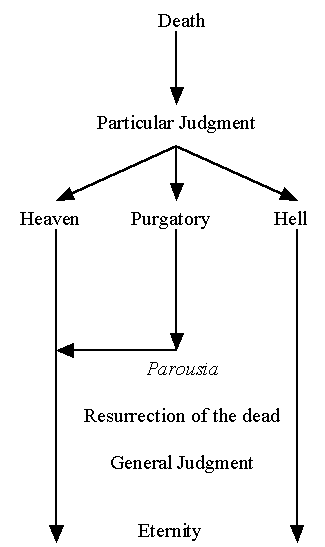by Kathryn Marcellino, OCDS
Yesterday was the beginning of Advent - Advent (from the Latin word adventus or "coming") is a time of expectant waiting and preparation for the celebration of the birth (nativity) of Jesus at Christmas. It is also the beginning of the Western liturgical year. This year in the United States it also marks the beginning of the use of the new English translation of the Mass. Some of the new translation is really the same as many of us heard as children many years ago and is a more accurate translation of the Bible verses from which the prayers originated and refer to.
During this time the faithful are admonishedThe theme of readings at Mass during Advent is often to prepare for the Second Coming of Christ while commemorating the First Coming of Christ at Christmas.
• to prepare themselves worthily to celebrate the anniversary of the Lord's coming into the world as the incarnate God of love,
• thus to make their souls fitting abodes for the Redeemer coming in Holy Communion and through grace, and
• thereby to make themselves ready for His final coming as judge, at death and at the end of the world. (Catholic Encyclopedia 1917)
The Catechism of the Catholic Church talks about "The Preparations" for Christmas:
522 The coming of God's Son to earth is an event of such immensity that God willed to prepare for it over centuries. He makes everything converge on Christ: all the rituals and sacrifices, figures and symbols of the "First Covenant". He announces him through the mouths of the prophets who succeeded one another in Israel. Moreover, he awakens in the hearts of the pagans a dim expectation of this coming.
523 St. John the Baptist is the Lord's immediate precursor or forerunner, sent to prepare his way. "Prophet of the Most High", John surpasses all the prophets, of whom he is the last. He inaugurates the Gospel, already from his mother's womb welcomes the coming of Christ, and rejoices in being "the friend of the bridegroom", whom he points out as "the Lamb of God, who takes away the sin of the world". Going before Jesus "in the spirit and power of Elijah", John bears witness to Christ in his preaching, by his Baptism of conversion, and through his martyrdom.
524 When the Church celebrates the liturgy of Advent each year, she makes present this ancient expectancy of the Messiah, for by sharing in the long preparation for the Savior's first coming, the faithful renew their ardent desire for his second coming. By celebrating the precursor's birth and martyrdom, the Church unites herself to his desire: "He must increase, but I must decrease."
Advent is a time to prepare for the celebration of Christ's birth and also a time to seek a greater coming of Jesus into our own personal lives, minds, hearts, and souls. Some ways to do this are being faithful to daily prayer, spiritual reading, doing works of charity and penance, and going to confession (the sacrament of reconciliation).
One tradition for Advent is the use an Advent wreath. The wreath is made of fresh plant material with three candles that are purple (symbolizing penance) and one pink candle for the third Sunday of Advent, Gaudete Sunday, which symbolizes joy and marking the half way point of Advent. The light of the candle represents Christ, the Light of the World, who conquers the darkness of evil and shows us the way of righteousness.
Beginning with the first Sunday of Advent, the lighting of a candle can be accompanied by a Bible reading and/or prayers which are often said in a family setting. An additional candle is lit each week so that by the last Sunday before Christmas, all four candles are lit. This is one way for families to remember the true meaning of Christmas and is a reminder that Christmas is a holy time of celebrating the birth of Jesus Christ, our Lord and Savior. Children especially seem to like the lighting of candles; praying together and using an Advent wreath are some ways to remember the real meaning of Christmas. Even though our lives are busy, times like Advent remind us to keep our priorities straight, i.e. putting God first and other things second.
A prayer for the first Sunday of Advent: "Father in heaven, our hearts desire the warmth of your love and our minds are searching for the light of your Word. Increase our longing for Christ our Saviour and give us the strength to grow in love, that the dawn of his coming may find us rejoicing in his presence and welcoming the light of his truth. Through Christ our Lord. Amen."




